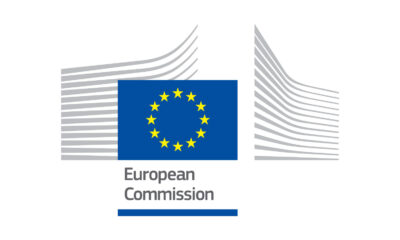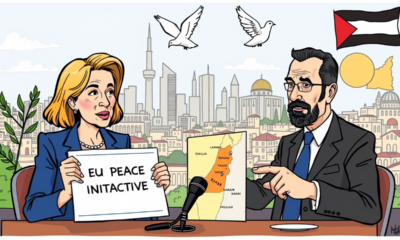Travel
‘Fundamental for tourists’ trust’: Why Italy is cracking down on fake hotel and restaurant reviews
Italy’s new rules aim to tackle both mistaken and malicious reviews by requiring proof of a visit and banning incentives for positive comments.
Alessandro Gilmozzi is a famed chef and president of the Ambasciatori del Gusto (Ambassadors of Taste) association, which promotes culinary excellence in Italy.
He is also one of the leading proponents of Italy’s crackdown on fake hotel and restaurant reviews, which is pushing for stricter regulations for both consumers and businesses.
“Someone once wrote that he ate a panna cotta in my restaurant,” the owner of two-Michelin-starred El Molin told the Italian daily La Repubblica, “but I’ve never made that dessert.”
Gilmozzi discovered that the reviewer had never been to his restaurant and had simply made a mistake. “But you can also do damage, even in error,” the chef said.
Italy is tackling the problem of both mistaken and malicious reviews with new rules requiring proof of a visit and banning incentives for positive comments.
“Today marks an important step for the protection of our businesses,” Daniela Santanché, Italy’s tourism minister, told the media when introducing the legislation.
“Reviews, which thanks to this regulatory intervention will actually be truthful, are fundamental for the success of companies and for the trust of consumers and tourists.”
But how widespread is this problem across Italy, and what is already being done to tackle fake reviews?
‘Fighting fake reviews is crucial to protect customers’
False or manipulated content impacts between 6 and 30 per cent of the revenue of businesses in the hospitality and tourism sector, according to Italy’s ministry of enterprises. Many hotels contacted by Euronews Travel have had their own personal experiences of receiving reviews like this.
“Like many establishments in the industry, we too have encountered reviews that do not reflect a real experience or are clearly influenced by external factors, such as unfair competition or expectations not aligned with the service offered,” says Simona Lollini, Director of Revenues at Palazzo di Varignana, a hotel in the hills just outside Bologna.
“Sincere and authentic reviews are essential not only to ensure fairness, but also to allow our potential guests to understand our real positioning and the value of the experience we offer.”
Forte Village on the island of Sardinia says it has also received unfair and misleading reviews.
“Unfortunately, there are a growing number of cases that then prove to be fake information from guests looking to receive benefits from the hotels as a result, or by people who have never stayed at the property,” the resort says.
“Fighting fake reviews is crucial to protect consumers and provide businesses with effective tools against unfair competition.”
What are Italy’s new rules on writing hotel and restaurant reviews?
In January, the Italian government proposed a draft law to clamp down on misleading or damaging reviews about the country’s hotels, restaurants and tourist attractions.
Fake reviews are already illegal in Italy, but the country is stepping up its regulations to try and stop them from being left in the first place.
The legislation, which is still to be approved by parliament, will require anyone wanting to write a review to demonstrate proof of their visit – such as a receipt – and provide verifiable ID.
Reviews will have to be written within 15 days of a visit and should be detailed, transparent and relevant to the experience.
The draft law prohibits the practice of paid-for or incentivised reviews – such as offering customers freebies in exchange for positive appraisals – and selling content.
It also allows for the right to reply to comments, with establishments able to request their removal if deemed false or misleading.
Businesses will be able to ask for reviews that are more than two years old to be taken down as well as those that are no longer relevant (a comment about a hotel not having a lift that has now been installed, for example).
It is not yet clear how review sites such as Booking.com and Tripadvisor will account for the new rules, such as the requirement for proof of visit.
“We have long had in place a reviews system where only customers who have booked a reservation through our platform are able to leave a review, while enabling accommodation owners to respond to comments left by customers. We are monitoring the development of this law and how it applies to us,” Booking.com told Euronews Travel.
‘There seems to be a certain carelessness in leaving negative reviews’
Fines for violating the new rules will reportedly be between €5,000 and €10 million. The hefty sums reflect the frustrations of hospitality businesses, which say that, thus far, misleading comments have gone unpunished.
“There is perhaps an imbalance between the ‘right/power’ of customers to leave negative reviews and the ‘right/power’ of the company to defend itself,” says Mauro Brasioli, communication and distribution manager for AG Hotels.
“In general, there seems to be a certain carelessness in leaving negative reviews probably because there’s no risk involved; upon closer inspection, even when it’s proven that the review is false, the customer remains unpunished (except for complicated, lengthy legal cease and desist actions) but the damage to our image, albeit temporary, remains.”
Who will decide whether a review is fake or not isn’t yet clear, but the responsibility of checking content and issuing eventual fines will be given to the anti-trust watchdog Italian Competition Authority (Autorità garante della concorrenza e del mercato).
‘One step ahead of the bad actors’
Travel booking and review site, Tripadvisor, recently released its annual transparency report, which shows that fighting fake reviews is a concern across the board, not just in the Italian tourism sector.
“Tripadvisor continues to tackle fraudulent activity, including fake reviews that are designed to manipulate business listings’ ratings and rankings,” the company wrote in its report.
“Through a combination of advanced technology, human analysis, and community engagement, Tripadvisor successfully safeguarded travellers from 2.7 million fraudulent reviews in 2024.”
Around 9,000 businesses received warnings for engaging in incentivised reviews – where businesses ‘bribe’ customers or ‘reward’ employees for positive ratings – the report added.
360,000 removed reviews were linked to employee incentive programs, where businesses offer rewards to their own staff in exchange for positive feedback.
“With fraudulent review schemes evolving, Tripadvisor has strengthened its fraud detection models and reinforced policies that lead to penalising businesses on our platform, continuing to stay one step ahead of the bad actors,” the company said.
Travel
UK ETA travel permit: British dual nationals flag issues with application system
The UK’s Electronic Travel Authorisation (ETA) system has officially expanded to European travellers.
Starting 2 April 2025, all EU (except Irish nationals), EEA, and Swiss citizens need ETA approval to enter the UK.
The system became mandatory for travellers from the US, Canada and Australia on 8 January 2025, following its rollout last November for nationals of Bahrain, Jordan, Kuwait, Oman, Qatar, Saudi Arabia and the UAE.
To obtain the visa waiver, which costs £10 (€12) from today or £16 (€19) from 9 April, travellers need to complete an online process – but some British citizens with dual nationality are already flagging issues.
How to apply for the UK’s ETA visa waiver
Travellers can either use the official mobile app, which can be downloaded from the UK government website, or apply online here.
To complete the application, you need the passport you’ll be travelling on, an email address and a credit card, debit card, Apple Pay or Google Pay. You will have to answer a set of suitability questions. You don’t need to enter your travel details.
The government advises applying at least three working days before your trip.
You can delete the app when you’ve finished applying. Your ETA will be linked to your passport digitally, and you will not need to show anything else when you enter the UK.
Though it seems pretty simple, the application process has left a handful of British dual nationals confused about whether they need to apply for the visa waiver or not.
ETA application issues for British dual nationals
In theory, British citizens with dual nationality do not need ETA and should be able to travel to the UK on whatever passport they choose.
But confusion has arisen for those who don’t have a British passport because theirs is expired, lost, or they were never issued with one.
If they choose to travel on their EU passport, the process of applying for ETA – and whether it is necessary – remains unclear.
The ETA application form asks travellers to declare any other nationalities, but the drop-down menu does not give the option to select ‘British citizen’.
Should British dual nationals continue with their application without declaring their ‘secondary’ nationality, they would theoretically be forced to give misinformation about their dual nationality.
Euronews Travel posed the question to an ETA advisor from the Home Office on their web chat.
The advisor refused to give guidance about not declaring British nationality on the ETA form. They stated that if you are a dual citizen with British/Irish citizenship, you do not need an ETA.
However, “you prove your permission to travel using your valid British/Irish passport or other passport containing a certificate of entitlement to the right of abode in the UK.”
When asked what to do if the traveller is not in possession of any of these documents, the advisor responded, “You either need to apply for a British passport or a certificate of entitlement”.
Renewing a UK passport from overseas costs £101 (€123), while a certificate of entitlement comes with a £550 (€658) fee. Both application processes take several weeks.
Euronews Travel has reached out to the Home Office for official guidance.
Travel
Iceland’s Blue Lagoon spa and nearby town evacuated due to volcanic eruption
Flames and smoke shot through the air as the volcanic fissure opened near the town of Grindavik.
A volcano began erupting in southwestern Iceland on Tuesday as tourists at the nearby Blue Lagoon and residents of local communities were evacuated.
Flames and smoke shot through the air as a fissure opened near the town of Grindavík, about 50 kilometres southwest of the capital, Reykjavik, where roughly 40 homes have been evacuated, according to national broadcaster RUV.
Residents mostly vacated the community, located on the Reykjanes Peninsula, in 2023 when the volcano came to life after lying dormant for 800 years.
A swarm of small earthquakes began at around 6:30am local time on 1 April, similar to previous eruptions. The eruption just north of the protective barrier near Grindavík then began at 9:45am, according to Iceland’s Met Office (IMO).
Warning sirens started to sound when the orange-red fissure reached the town’s defence walls at around 10am. IMO has said that the fissure is now around 700 metres long, and “it cannot be ruled out that it may continue to open further south.”
Iceland sits above a volcanic hotspot in the North Atlantic and, on average, sees one eruption every four to five years.
Experts have warned that volcanic activity in the Reykjanes peninsula has entered a new era, with the frequency of eruptions having surged. This is the 11th such event to have occurred since 2021, when this new eruption period began.
Iceland’s Blue Lagoon closed until further notice
The Blue Lagoon is one of Iceland’s biggest tourist attractions. Authorities evacuated guests from the geothermal spa, moving them to nearby hotels when it became clear an eruption was imminent.
It will remain closed through 1 April, and the situation will be assessed later on, according to a message posted on the Blue Lagoon’s website. All guests with bookings during this temporary closure will be contacted.
A ‘red alert’ has been issued for the town of Grindavík, and the area around it is closed off. It will remain closed until further notice.
Travellers have been asked to respect the closures and instructions from local authorities and to stay away while conditions are being assessed, according to Safe Travel Iceland.
During previous eruptions, tourists and locals keen to see the majestic event first-hand have been repeatedly warned to stay away from Reykjanes.
Though it is yet to be updated for the most recent eruption, the UK’s FCDO says eruptions and earthquakes are common in Iceland due to the country’s nature geography.
“In the event of an eruption or wider seismic activity follow the latest advice issued by the authorities,” it says. It adds that travellers should regularly check for alerts and advice from the Icelandic Tourism Board, Icelandic Met Office, Safe Travel Iceland and the Almannavarnir Facebook Page.
The effects of the eruption are currently localised and have not caused any problems for the nearby Keflavík airport- Iceland’s main international airport.
Though ash clouds from previous volcanic eruptions in Iceland have had disrupted international air travel, this one is not expected to do so.
Travel
What is the ETA? European travellers need €12 entry permit to visit the UK starting this week
Read our full guide to the UK’s new Electronic Travel Authorisation (ETA): who needs it, how long it’s valid and how to apply.
The UK’s Electronic Travel Authorisation (ETA) system has officially expanded to European travellers.
Starting 2 April 2025, all European visitors will need ETA approval – or, for some non-EU nationals, a visa – to enter the UK.
The system became mandatory for travellers from the US, Canada and Australia on 8 January 2025, following its rollout last November for nationals of Bahrain, Jordan, Kuwait, Oman, Qatar, Saudi Arabia and the UAE.
Read on for details on cost, validity and how to get it.
What is the ETA?
The ETA replaces the single-use Electronic Visa Waiver (EVW) scheme, offering a lower cost option with multi-entry validity.
The UK government notes that it is not a visa and does not permit entry into the UK. Rather, it authorises a person to travel to the UK.
The ETA is now required for all eligible nationalities. You can find the full list of countries here.
How do I apply for an ETA to enter the UK?
Most visitors will be able to apply using a mobile app and can expect a decision emailed within three days.
Everyone travelling needs to apply, including babies and children, but you can apply for other people.
The UK government says its app is the quickest and easiest way to apply for an ETA. You can download the ETA app from the UK government website.
If you cannot download the app, you can also apply online here.
To complete the application, make sure you have on hand the passport you’ll be travelling on, an email address and a credit card, debit card, Apple Pay or Google Pay. You will have to answer a set of suitability questions. You don’t need to enter your travel details.
You can delete the app when you’ve finished applying. Your ETA will be linked to your passport digitally, and you will not need to show anything else when you enter the UK.
When to apply for your ETA
The government says: “You must apply for an ETA before you travel to the UK. You can travel to the UK while waiting for a decision.”
Considering most applicants will get a decision within three days, it can be assumed you should apply at least three ahead of travelling to the UK, though you can do it much further in advance.
How much does the UK ETA cost?
Like the Electronic System for Travel Authorisation (ESTA) in the US, a fee is attached to the application process.
The ETA costs £10 (approximately €12 at the time of writing), rising to £16 (€19) on 9 April 2025.
How long is the ETA valid?
An ETA lasts for two years. You do not need to apply again during this time.
You can travel to the UK as many times as you want during the period of validity, but you cannot stay for longer than six months on one trip. Check the UK government website for more details on what you can and cannot do on an ETA.
Note that you will need to apply for a new ETA if you get a new passport, as your ETA is linked to it.
Will I need a visa to enter the UK?
As mentioned above, the ETA isn’t a visa, but it does grant permission to enter the country.
All visitors who don’t currently require a visa will need to get an ETA before they travel. This includes those who do not currently need to submit any form of application to visit the UK. US, Canadian, Australian and European citizens need an ETA even for short stays or transiting through the UK, for example.
Travellers from countries that don’t have visa-free entry agreements with the UK will still have to apply for the correct visa and an ETA.
If you don’t apply before your trip, the government says you could be fined, though no further details have been given about this.
You still need to apply if you are transiting through the UK – even if you aren’t going through border control.
The ETA allows you to come to the UK for six months for tourism, visits to family and friends, business or short term study.
You can also get an ETA instead of a visa if you are coming to the UK for up to three months on the Creative Worker visa concession or coming to the UK for a permitted paid engagement. Outside of these conditions, you can’t use an ETA to do paid or unpaid work for a UK company or as a self-employed person.
Who does not need an ETA?
British and Irish citizens, people who already have a visa or permission to live, work or study in the UK, those travelling with a British overseas territories citizen passport and people who live in Ireland and are travelling from Ireland, Guernsey, Jersey or the Isle of Man don’t need to apply for an ETA.
Why is the UK introducing the ETA scheme?
The ETA is part of the UK’s plan to digitise its borders at UK airports by the end of 2025.
The scheme is intended to reduce queues at the border, “helping to speed up legitimate journeys to the UK”.
Facial recognition technology could be used to make these “contactless corridors” possible, British newspaper The Times reports. It would require international travellers to submit biographic and biometric details, like photos of their faces through the new Electronic Travel Authorisation (ETA) scheme before they fly.
-

 Politics7 days ago
Politics7 days agoGetting EU ready to prevent and respond to crises
-

 EU & the World7 days ago
EU & the World7 days agoCould Litia Garr Be the Next Bachelorette? Update After Grant Ellis Breakup
-

 EU & the World6 days ago
EU & the World6 days agoInnam Dustgir’s Approach to Public Relations
-

 Politics7 days ago
Politics7 days agoSurvey confirms Europe’s citizens want the EU to protect them and act in unity | News
-

 EU & the World7 days ago
EU & the World7 days agoWho Is Tulsi Gabbard? 5 Things to Know About the Director of National Intelligence
-
Travel7 days ago
Cyprus is funding desalination plants for hotels to tackle tourism’s water shortage woes
-

 Politics7 days ago
Politics7 days agoKaja Kallas Stresses EU’s Role in Israel-Palestine Crisis During Visit to Tel Aviv
-

 Politics5 days ago
Politics5 days agoEU supports the EU wine sector to cope with market uncertainties









